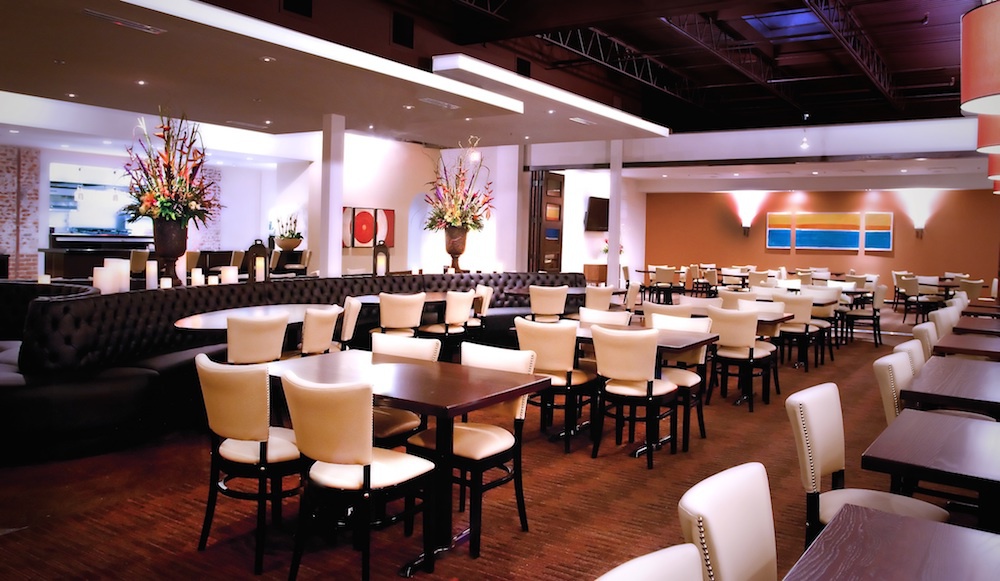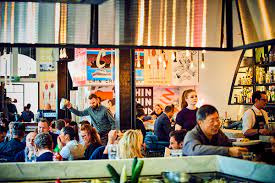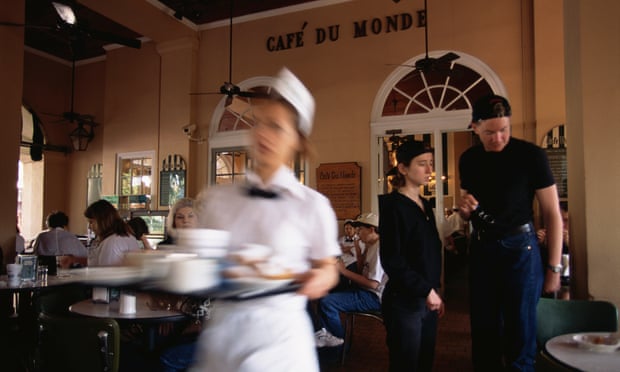How to Start a Successful Restaurant

It might be time for you to create a plan to open your restaurant. We’ve created a guide on how to get started to help you make sure your restaurant is a success.
Although it is thrilling to open a restaurant, it can also be time-consuming and difficult to launch. In fact, 60% of restaurants fail within the first year.
This is not a way to suppress your passion. It’s just that you need to put in some serious effort if you want your restaurant to succeed.
Why are so many restaurants failing?
Failure is the leading cause of failure. Failure to plan. You will spend much time planning before you make dinner for customers. The planning stage is crucial to the success or failure of your restaurant.
We asked two owners to share their secrets of how they plan, finance, and manage a new restaurant. Kim Strengari is the owner of three restaurants in Philadelphia, including Stella Blu. Lambrine Macejewski, the co-founder and chef at Cocina 214 in Winter Park, Florida, has also been a successful restaurateur. Omer Orian is the co-founder and owner of Off the Waffle. He has two locations in Eugene, Oregon, and one in Portland. Here are their top tips for success.
Tips to start a successful restaurant
1. Set the right intentions
Kim Strengari states that if you want to be a successful restaurant owner, it is essential to love what your do. Although she knew that a restaurant was the right choice for her, she found it difficult to find work when she opened her first restaurant.
She says, “It was the most important thing in my life. So the sacrifices were endless. I never thought about making them.”
You will need to invest time and money in order to be successful. Make sure you are passionate about opening a restaurant, and not just a business venture that you hope will bring you money. Omer Orien says, “It’s more difficult than you think.” But people do it every day. It is not easy.
It’s a good idea in the beginning to plan what your restaurant will look like. What is your restaurant’s style? What furniture do you need to buy to match the theme? What layout will you use for your restaurant? Trent Furniture, a British furniture manufacturer, has an excellent article to help you get started.
Orien says that a lot of it comes down to deciding what type of environment you would like to work in. What will make you feel the best. To plan their first location, Orien worked with his co-founders to create a 3-D model. They did the majority of the work themselves to create the space.
2. A solid business plan is essential
A business plan can’t be scratched out on a cocktail napkin. A detailed business plan is essential to ensure your success. We recommend that you start with a Lean Plan to simplify the business planning process. Your business plan is a living document you can refer to frequently to plan for growth and track your progress.
Orien claims that when it came time to expand and grow his business, he was serious about it. They were able to see what was possible and how they could move forward.
Market research should be included in your business plan. This includes information about your competitors, your target audience, and an outline of your marketing plan. It also needs to include a budgeting and financial projection. These templates are designed for restaurant planning. LivePlan’s business planning software will guide you through the entire process. When you are thinking about the design of your restaurant, keep in mind industry trends. Timing is crucial for any startup.
Your marketing plan deserves special attention
Word of mouth is the only way to get customers. To keep them coming back, you will need to have a marketing plan.
Here are some ideas:
- Participate in community events, and hand out food samples
- New customers eligible for discounts
- Join your local business association
- Utilize social media channels
3. Location, location and location
The location of a restaurant is crucial. A spot must draw people, be easily accessible and have the potential to grow. You also need to consider your budget when choosing a location.
As you search for the right space, it is a good idea to take your time. It might be worth doing some research to see if there are any incubator spaces that you could join for low initial costs and mentorship opportunities. The most important decision you will make as an owner is where you want to build or rent space. You don’t need to build a massive building at the beginning.
Orien said that he had only $3,000 when he was ready to launch Off the Waffle. He says that although it sounds impossible, there are a few hacks that made it possible. We were able live and work in one place because we found a house in a commercial area.
Orien has three restaurants, but they are all dedicated spaces. It’s a reminder to not take too much. Once you have $300,000.0 invested in a location’s buildout, it is not something you can sell. He says that there is not much retained value. It’s kind of stuck with it,” he says. Therefore, it is a good idea to do some research and try a smaller version before making a big and costly leap.
4. Check out your menu
Consider your menu as an experiment. You might consider hosting a dinner party with your menu and inviting people to give their honest opinions.
Invite your family and friends, but not just your closest friends. Even though you might enjoy the flavor of a dish, if people don’t want to pay for it, or aren’t interested in its taste, then you will not make any money. Consider using anonymous feedback to get honest responses from people when you are asking for feedback. Research the market. To get an idea of the right pricing, visit other restaurants.
Orien claims that Off the Waffle was launched with only two menu items: a liege waffle, and a glass milk. Orien tried many different ways to make waffles, such as stuffing them like pita pockets or folding ingredients into waffle dough. These approaches didn’t delight customers. They tried other waffle toppings and it was a hit with customers.
5. Hire essential help
How many staff do you need to start a restaurant? While some restaurant professionals recommend hiring a manager before opening, it is important to consider your most pressing needs. Are you looking for a dishwasher? How many cooks do you need? How many servers do you need? When hiring staff, take your time. You might consider a soft opening to see how things work with only a few key positions.
Orien’s first restaurant was run by his family. Orien started slowly and now has around 50 employees at his three restaurants. We were still newbies when we started. If we had hired too quickly, it would have been difficult to pay people a salary that would have attracted people with sufficient skills to compensate for our lack of experience. He says that if he opened another location, it would make sense to immediately hire a manager. He is in a better place to be able train them.
Training your employees is a good investment
You can improve your staff management skills by having employee training materials available. Make job descriptions, code of conduct, and a handbook for employees. Make sure employees are prepared for their positions by creating a training guide. Make sure you have a list of recipes that your cooks can use to make every meal perfect. Macejewski suggests that you give your employees every tool they need to succeed.
You should be willing to fill in the gaps
Strengari states that you cannot have an ego as the owner. You won’t be surprised if your idea of owning restaurant is to walk around in pretty makeup and ask customers about their opinions of the food. It is necessary to be able to perform all tasks. You’ll need to do everything, from chopping vegetables to serving customers.
Watch your labor costs
Many restaurateurs feel the need to hire, hire and hire. You will likely need to hire staff to make your restaurant successful, but don’t overdo it. It can be difficult to pay employees, especially in the initial months when you aren’t making much money. Macejewski states that it is not always easy to determine the number of employees needed to hire the right staff.
She says, “It can be difficult to plan for if your business is seasonal or sporadic. But you don’t want people working around the clock if the business doesn’t exist.” “You can’t afford it.”
6. Manage your cash flow and secure funding
Get startup capital: As with all businesses, you should know how much you will need to start your restaurant.
Three pools of money are required. The first pool will be used to pay for equipment and other one-time expenses. This calculator can help you calculate startup costs. The second pool covers restaurant expenses for at most six months. The third pool covers personal bills for at minimum six months. Because your expenses will likely outstrip your income for six months, you should have at least six months’ worth of cushion.
Expect to lose money the first six months.Restaurants don’t become profitable overnight. It takes time to market, attract people, and make them return for more. Some people say that you shouldn’t expect to make money for the first six months.
Be prepared for unexpected expenses: It’s easy to go beyond your budget when you first start out. Consider a business credit line if you aren’t sure how to accomplish this.
Lambrine Macejewski suggests that you evaluate your numbers and processes when you hit a bump. When she opened her first restaurant, her food costs were too high. She called her vendors to switch from a five-day delivery plan to a two day schedule. She investigated the issue and found a solution, saving her money.
Be aware of your food costs: You’re in the food business, but if you have high food costs, you will lose money. Keep track of your inventory and prepare food well to avoid waste.
7. Continue marketing
Recurring customers are not enough to sustain your business. You need to continue your marketing efforts to ensure that your revenue streams don’t dry up. To keep your business’s marketing efforts going strong, you can create a strong social media presence.
We want to hear your restaurant-startup advice!
There is nothing more satisfying than owning a restaurant. It’s a great way to create a welcoming atmosphere and delicious food, but it takes a lot of work.
Send us a tweet and let us know what you have learned about starting a restaurant. We would love to hear from your!




Leave a Reply